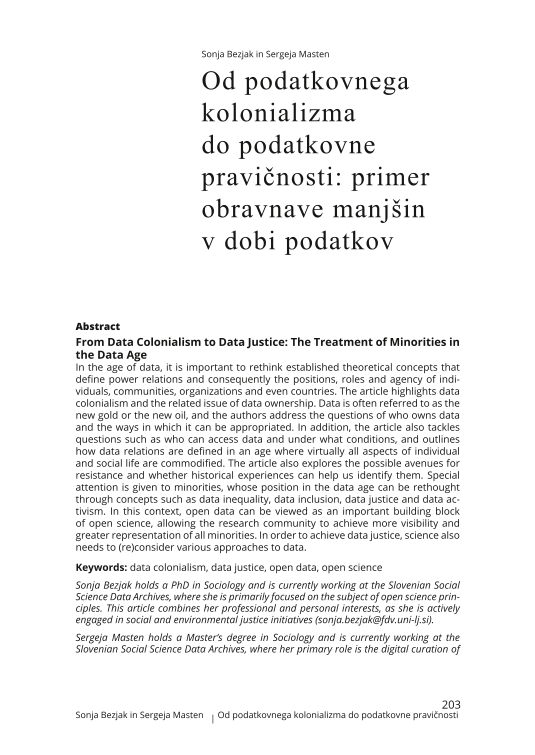In the age of data, it is important to rethink established theoretical concepts that define power relations and consequently the positions, roles and agency of individuals, communities, organizations and even countries. The article highlights data colonialism and the related issue of data ownership. Data is often referred to as the new gold or the new oil, and the authors address the questions of who owns data and the ways in which it can be appropriated. In addition, the article also tackles questions such as who can access data and under what conditions, and outlines how data relations are defined in an age where virtually all aspects of individual and social life are commodified. The article also explores the possible avenues for resistance and whether historical experiences can help us identify them. Special attention is given to minorities, whose position in the data age can be rethought through concepts such as data inequality, data inclusion, data justice and data activism. In this context, open data can be viewed as an important building block of open science, allowing the research community to achieve more visibility and greater representation of all minorities. In order to achieve data justice, science also needs to (re)consider various approaches to data.




